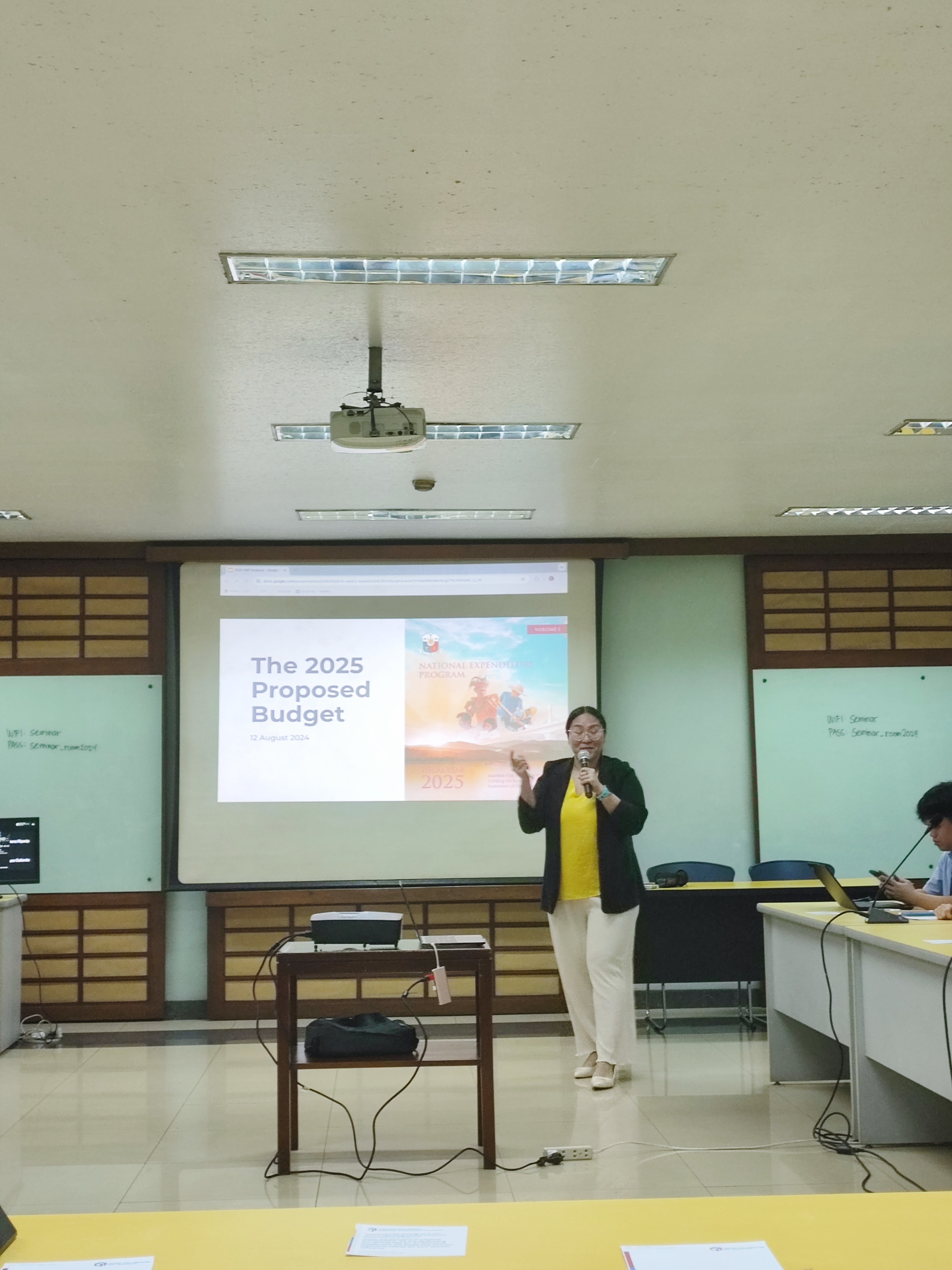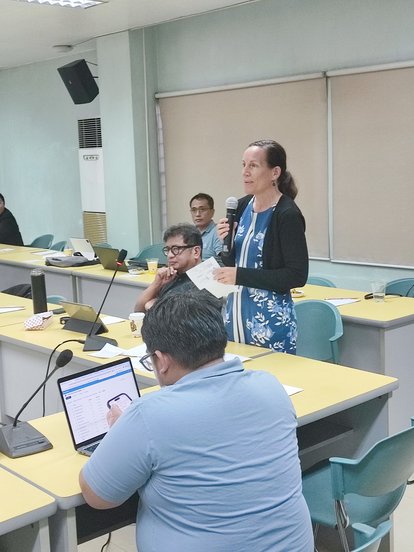PHILIPPINES
CLD Holds Budget Briefing to Scrutinize 2025 National Expenditure Program and Promote Transparent Governance

Discussion of the 2025 Proposed National Expenditure Program.
© Pie EscobarThe Center for Liberalism and Democracy (CLD) is dedicated to promoting liberal policies and advocating for freedom and democracy. One of its key objectives is to raise awareness among Filipinos about their civil, political, and human rights, as well as the roles of political, economic, and socio-cultural institutions.
To achieve this, CLD holds an annual Budget Briefing on the proposed National Expenditure Program. This year, the event took place on August 22, 2024, at the Philippine Social Science Center. Zy-za Nadine N. Suzara, an expert in budget management and community development, served as the analyst and presenter. Ana Martha Galindes contributed as the researcher.
The event began with opening remarks from Dr. Almut Besold, who welcomed the attendees, including legislators and political figures from the Liberal Party of the Philippines.
During the one-day briefing, findings were presented and discussed to carefully review the proposed budget. The goal was to ensure the budget meets the needs of the population, supports democratic institutions, and promotes good governance.

Dr. Almut Besold gave the welcoming remarks during the discussion.
© Pie EscobarOne of the key points raised was the inconsistency in priorities from year to year. Last year, the focus was on the 8-point socio-economic agenda, but this year, the priorities of the National Economic and Development Authority (NEDA) and the Department of Budget and Management (DBM) do not fully align. Additionally, there were modest increases in the budgets for the Judiciary and the Department of Justice (DOJ), especially amid the ongoing investigations by the International Criminal Court (ICC) into former President Duterte’s allies.
The budget also lacked a clear emphasis on critical issues such as job creation, poverty reduction, supporting innovation, and digitalization. Despite the increasing focus on digitalization for greater efficiency, the budget suggests a misunderstanding of the root cause of bureaucratic inefficiency, which is weak leadership and poor governance, rather than technological shortcomings.
This project plays a crucial role in assessing the efficiency and effectiveness of government spending. It ensures that public funds are used in ways that maximize their impact on economic growth, public welfare, and service delivery. It also helps identify potential risks related to the proposed expenditures, such as economic uncertainties, external shocks, and implementation challenges. Furthermore, it encourages public participation in the budget process, offering a platform for stakeholders to voice their opinions on the proposed spending.
Through these efforts, the project fosters greater engagement between legislators, political leaders, and the public, helping to create a more resilient and responsive government that reflects the needs and desires of the people it serves.
This article is written by Pie Escobar, the Communication Officer for the Friedrich Naumann Foundation for Freedom Philippine Office.
